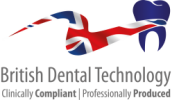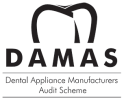I am very pleased with the care of the dentist and staff. My teeth look amazing and fit really well. I would tell everyone to go with them.
Mrs Gloria Thompson
Our clinical team is led by specialist oral surgeon Richard Moore. Since 2002, Richard has worked exclusively in oral and maxillofacial surgery across the UK, in both primary and secondary care.
Get in touchAs one of Yorkshire’s leading specialist centres for oral surgery, we provide patients with a wide range of advanced treatments for a healthy mouth and confident smile.
Sometimes teeth are difficult to extract – especially impacted wisdom teeth, retained roots and difficult buried teeth and these need to be removed with surgery.
With complicated extractions like these it is important to retain as much bone as possible (especially if you’re planning to have implants) so wherever possible Richard uses a bone preserving technique and the use of piezosurgery which uses vibration to accurately cut and remodel bone without damaging soft tissue.
Sometimes a normal root canal treatment cannot save a tooth and surgery will be required-the most common surgical procedure is called an apicoectomy which involves removing the tip of the root of the tooth along with any infected tissue and then filling the tip of the root to prevent the infection from reoccurring.
We can usually help with the assessment, diagnosis and management of facial pain which can sometimes be related to temporomandibular (TMJ) joint issues.
The TMJ is a very complicated joint which connects the upper and lower jaws and pain in this region can be related to dentition problems or TMJ abnormalities.
The success of any denture is always determined by the shape of the bone and soft tissue which the denture sits on and connects with.
Pre-prosthetic surgery is usually performed to modify the bone and soft tissue to make dentures more stable and retentive.
When natural teeth are lost the bone that supports them shrinks away and sometimes there isn’t enough bone to support an implant. This can sometimes be a big problem, especially in the upper jaw towards the back of the mouth where the depth of bone is already limited in the sinus region.
We can usually regenerate the bone with bone grafting and GBR (guided bone regeneration) and we can regenerate bone in the sinus area with a sinus lift (or elevation) – this procedure creates new bone inside the sinus).
We can assess diagnose and manage any intra-oral pathology including ulcers, lesions, white and red patches along with lesions on the lips and cysts in the jaws.
Zygomatic implants can be used in the upper jaw when there is severe bone loss and simply not enough bone in the palate for conventional implants.
These extra-long implants connect with the cheekbone and underneath the eye socket and are usually used for immediate full arch bridges like ‘all on 4’.
All these treatments are available (subject to patient assessment) under conscious sedation.
Pricing varies depending on the type of oral surgery required and your dentist will discuss this with you before treatment.
As part of his training, Richard Moore completed an externship at the University of Illinois Chicago in Oral Surgery and has spent time at the University of British Columbia, Vancouver.
He holds Fellowships in Dental Surgery from Royal College of Physicians and Surgeons Glasgow and the Faculty of Dental Trainers Edinburgh, is a registered Specialist in Oral Surgery with the General Dental Council and a Council Member of the British Association of Oral Surgeons.
Richard has published in several peer-reviewed journals and is an international speaker in his field. He is also an educational advisor in oral surgery at the Royal College of Surgeons Edinburgh.
He is a Clinical Lecturer and Specialist in Oral Surgery at the University of Leeds where he is studying a PhD part-time, an honorary oral surgeon at Leeds Teaching Hospitals NHS Trust and instructor and provider of advanced life support for the Resuscitation Council UK.
His clinical interests lie within the management of medically complex patients, rehabilitation of patients with dental implants including all on four and zygomatic implants, and all aspects of oral surgery such as exodontia, third molars and soft tissue lesions.
Our friendly team of gentle dentists are here to reassure you and answer any questions you may have before your surgery. Our aim is to make you feel as comfortable as possible during your dental care.
We are based on the outskirts of Leeds city centre and are easily accessible by car or public transport. You can find us at: Swallow House, 349 Tong Road, Leeds, West Yorkshire, LS12 4QG.
To enquire about oral surgery, get in touch.






